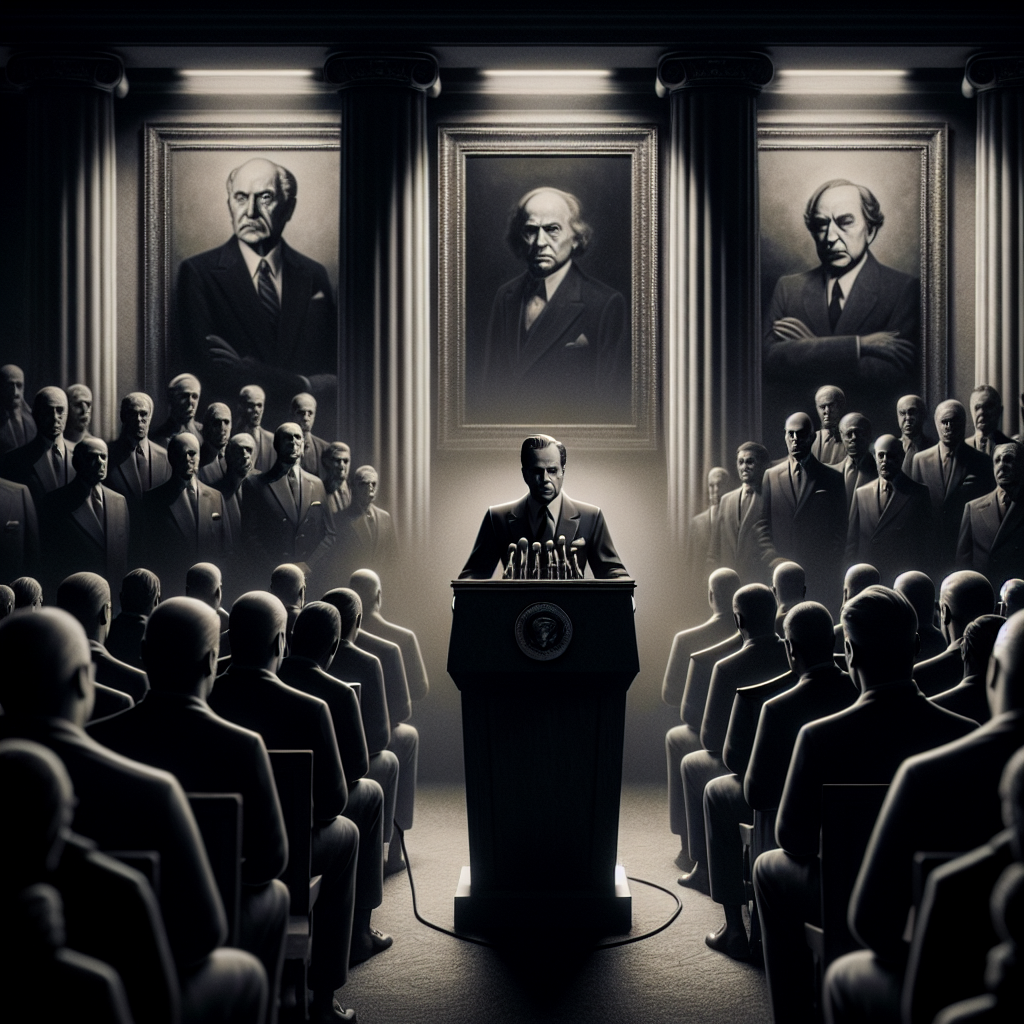
In a political landscape fraught with tension and controversy, allegations surrounding former President Donald Trump have taken the spotlight once again. Accusations of his affinity for authoritarian rule have surfaced, drawing parallels with historical dictators. These claims have been amplified by his former Chief of Staff, John F. Kelly, stirring a national conversation on leadership, democracy, and the boundaries of political rhetoric.
John F. Kelly, a former White House Chief of Staff, recently cast a stark light on Donald Trump’s leadership, suggesting it aligns with the tenets of fascism. In an interview with CNN, Kelly asserted that Trump’s behavior fits the classic definition of a fascist, stating, “He acts as if he’s above the law, exhibits blind loyalty, and appears to relish in stoking division—a hallmark of fascist leaders.” This sentiment echoes the Atlantic’s recent article comparing Trump’s rhetoric to that of notorious 20th-century authoritarians, including Adolf Hitler. The piece scrutinizes Trump’s desire for loyalty from military generals, reminiscent of Hitler’s relationships with his commanders, igniting debate over the implications of such comparisons.
The debate intensified following reports from the New York Times detailing John F. Kelly’s claims about Trump’s demeanor and fitness for office. Kelly, who served under the Trump administration from 2017 to 2019, raised questions about Trump’s character, suggesting he lacks essential leadership qualities. During live discussions covered by MSNBC and Politico, Kelly warned that giving Trump another presidential term could result in governance similar to that of a dictator. Critics of Trump’s political style argue that his inclination towards authoritarian rule threatens American democratic principles, fostering an environment ripe for the resurgence of fascistic policies.
Responses to Kelly’s statements have been mixed, reflecting the polarized political climate. While some view his warnings as necessary and overdue, others, such as commentators on Fox News, dismiss them as hyperbole. The Times of Israel live blog captured various reactions, with international media also weighing in on the comparison of Trump to figures like Hitler. Discussions extend beyond personality assessments to broader concerns about political accountability and the responsibilities tied to democratic governance. This ongoing dialogue underscores the need for critical evaluation of leadership qualities and the potential global implications of a leader with unchecked power.
Journalists and historians alike continue to dissect these claims, with outlets like NBC News taking a closer look at what Kelly’s insights reveal about Trump’s tenure and its lasting impact on American politics. As allegations of fascism loom large, they serve as a stark reminder of the vigilance required to safeguard democratic institutions. The political landscape remains turbulent, as citizens grapple with these revelations and the potential consequences of authoritarian governance. The conversation paves the way for a larger discourse on the preservation of democratic values and the importance of informed electoral choices.
In this era where history often echoes in the present, the discourse surrounding Donald Trump, his leadership style, and allegations of fascism offer a crucial opportunity for reflection. John F. Kelly’s alarming assertions prompt an exploration of the boundary between robust leadership and authoritarian overreach. As the world watches, the unfolding debate highlights the essential need for political accountability and the defense of democracy against the allure of unchecked power.







